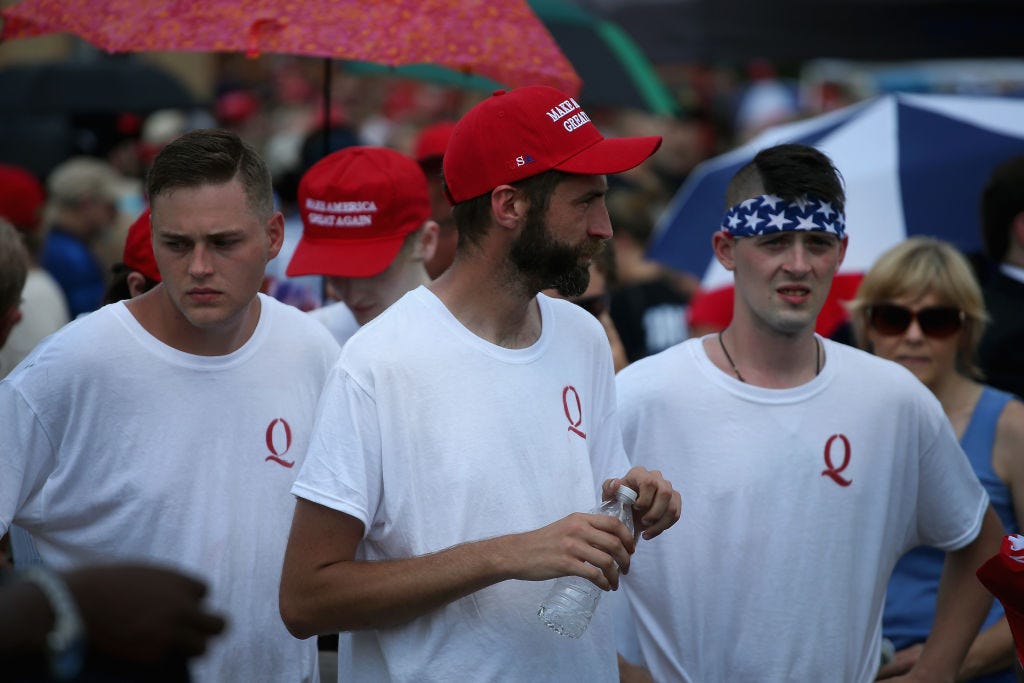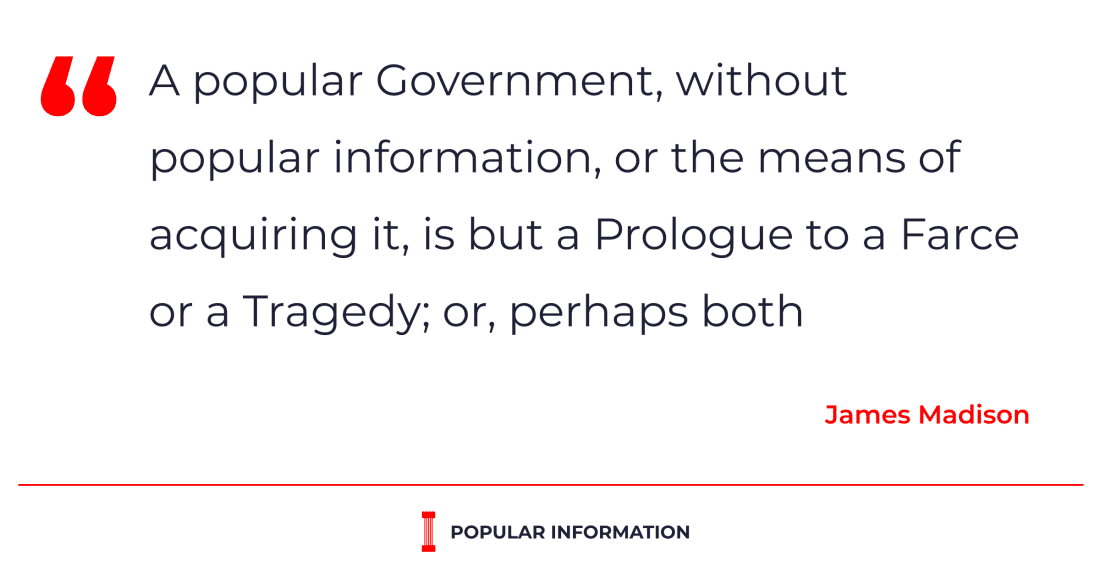 |
Photo by Scott Olson/Getty Images
On Monday, Attorney General Bill Barr and Ivanka Trump visited Georgia "to highlight the administration’s efforts to protect human trafficking survivors." Barr and Trump visited the Georgia Center for Child Advocacy and participated "in a walking tour of the survivor care facility." Later, they participated in a roundtable discussion to "discuss the importance of public-private partnerships in the fight against human trafficking." They were joined by former NFL quarterback Tim Tebow.
Barr announced $100 million in grants to target human trafficking. A month ago, Barr and Trump appeared jointly to announce $35 million in human trafficking grants.
At first blush, there doesn't seem to be anything remarkable about this visit. But why, exactly, are two top members of the Trump administration making this trip without any new policy initiative to announce? Why are these relatively tiny grants being promoted heavily by the White House?


Human trafficking is a serious issue, but the event appears to be part of Trump's effort to court believers of the QAnon conspiracy, who have become an important part of the Republican base. QAnon's adherents believe that Democratic officials and celebrities — including Hillary Clinton, Barack Obama, Oprah Winfrey, and Tom Hanks — are Satan-worshiping pedophiles who are running a secret sex trafficking operation. They believe that Trump is the only person who can stop them.
Last month, speaking from the White House briefing room, Trump praised the group. "I don't know much about the movement other than I understand they like me very much, which I appreciate," Trump said. Trump also described QAnon as "gaining in popularity" and comprised of "people who love our country." Trump was asked by a reporter if he believed in the QAnon conspiracy theory — specifically that he "is secretly saving the world from this satanic cult of pedophiles and cannibals." Trump did not reject it. Instead, Trump said that "[i]f I can help save the world from problems, I'm willing to do it."
Trump's words of encouragement were strategic. The president, his administration, and his campaign have aligned themselves with an unhinged and dangerous conspiracy cult.
Trump enthusiastically endorses QAnon-supporting Congressional candidate
Marjorie Taylor-Green is a Republican Congressional candidate in Georgia who has backed the QAnon conspiracy. "I’m very excited about that now there’s a once-in-a-lifetime opportunity to take this global cabal of Satan-worshipping pedophiles out, and I think we have the president to do it," Green said in a 2017 YouTube video.
But after Taylor-Green secured the Republican nomination in August, Trump offered his enthusiastic endorsement:
Trump then invited Taylor-Green to the White House to watch his acceptance of the Republican nomination.
Trump campaign official appears on QAnon show
Erin Perrine, the director of press communications for Trump’s campaign, appeared on Patriots' Soapbox, a network devoted to QAnon that is available on streaming platforms. NBC described the network as "a round-the-clock livestreamed YouTube channel for QAnon study and discussion."
Perrine appeared on Patriots' Soapbox on October 24, 2019. The host, Derik Vance, said that Perrine's appearance was "a huge day, not only for The Common Sense Show, but for the Patriots' Soapbox as a whole." Perrine "attempted to recruit the QAnon program’s followers to be active with the Trump campaign."
Trump events packed with QAnon supporters
Trump rallies are increasingly packed with supporters with QAnon-related signs and clothing.
Kayleigh McEnany is currently the White House press secretary. But in February, she was a spokesperson for the campaign. Outside a campaign rally, she interviewed a man who had been acknowledged by the president during the rally and asked him why it was meaningful.
[T]he supporter said the shout-out was most meaningful because of the words on the shirt he was wearing, which he read aloud: “Where we go one, we go all,” the motto of QAnon conspiracy theorists who believe Trump is battling a cabal of deep-state saboteurs who worship Satan and traffic children for sex.
McEnany...continued, asking the supporter, “If you could say one thing to the president, what would you say?”
“Who is Q?” he replied, inquiring about the mysterious online figure behind the baseless theory. McEnany smiled and said, “Okay, well, I will pass all of this along.”
Several of Trump campaign ads "have included shots of supporters with QAnon paraphernalia, including a spot in Nevada that briefly showed a woman in a crowd with a 'Q' shirt."
Trump's favorite cable network boosts QAnon
Trump goes hot and cold on Fox News. Sometimes, he promotes its shows. On other occasions, he denounces Fox as "fake news." But Trump always praises OANN, a fringe far-right network that provides sycophantic coverage.
Trump and McEnany frequently call on Chanel Rion, OANN's chief White House correspondent, at the White House. Rion, like much of the network's coverage, is sympathetic to QAnon. Rion said that Q, the fictional online figure who posts updates about the conspiracy, is “anonymous for a reason, for a very good reason, and I think that people need to respect that.”
The network covered Barr and Ivanka Trump's appearance in Georgia live.


In a July broadcast, OANN correspondent Kristian Rouz said, "a growing number of Americans may be doing their own research, as reports also say QAnon is becoming a widely accepted system of beliefs -- the new mainstream."
The danger of QAnon
Cozying up to QAnon conspiracy theorists is not just absurd; it is dangerous. Trump providing fuel to a cult that has increasingly engaged in violent crime. QAnon supporters, believing they must do anything to stop Satan-worshiping pedophiles, have been linked to kidnappings, a train hijacking, and murder.
An FBI intelligence bulletin from 2019 concluded that “conspiracy theory-driven domestic extremists,” including adherents to the QAnon conspiracy, are a growing threat. The FBI said that belief systems like QAnon would "very likely will emerge, spread, and evolve in the modern information marketplace, occasionally driving both groups and individual extremists to carry out criminal or violent acts."
The FBI says that while conspiracy theories are not new, they present a growing threat because "the Internet and social media has enabled promoters of conspiracy theories to produce and share greater volumes of material via online platforms that larger audiences of consumers can quickly and easily access."
 |


